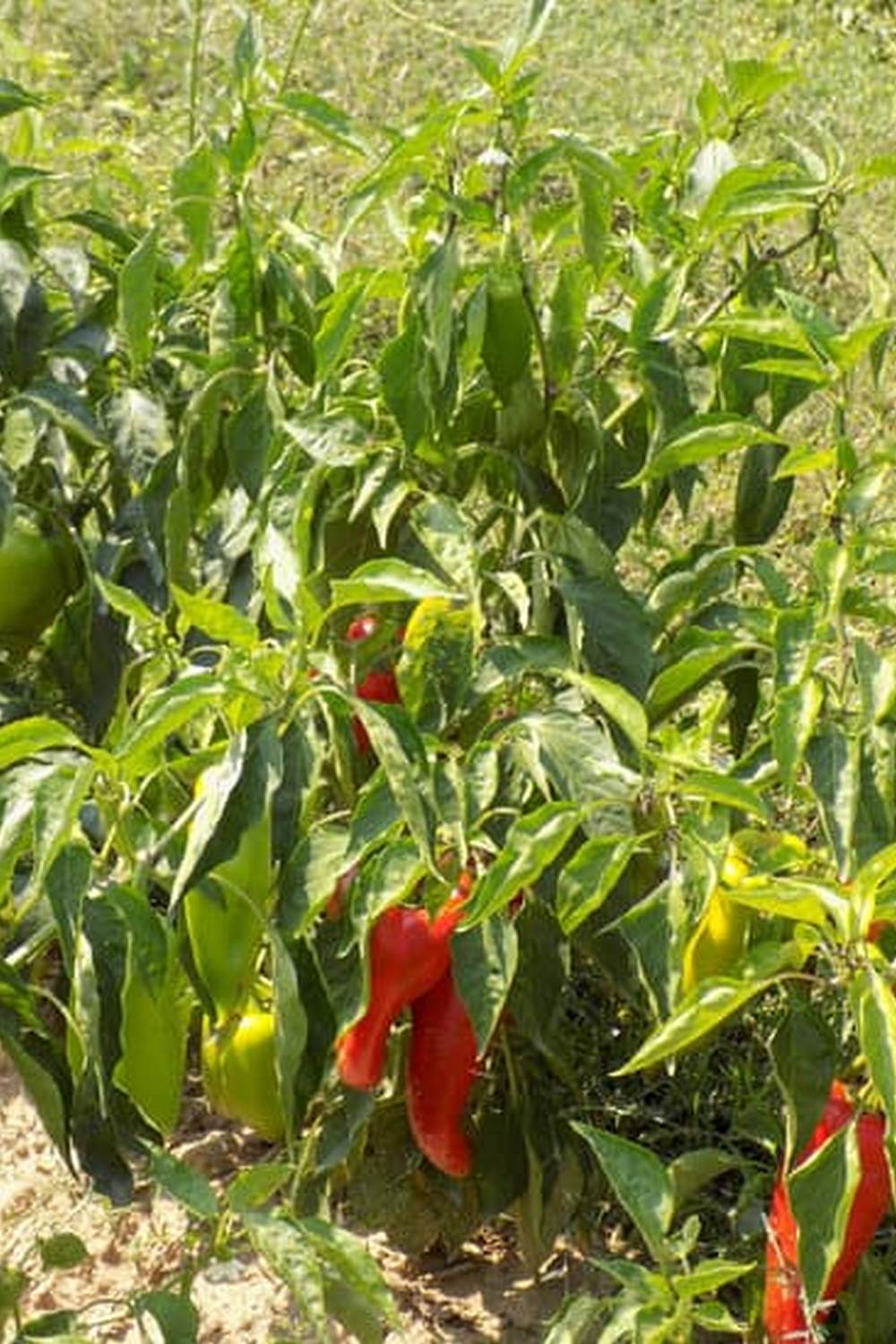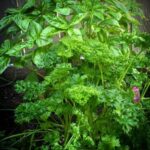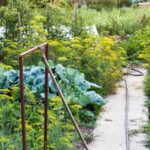Daisies, with their vibrant petals and cheerful appearance, are a beloved addition to gardens worldwide. But are daisies good for vegetable gardens? In this article, we will explore the potential benefits of incorporating daisies into your vegetable garden, from attracting pollinators to enhancing soil health and natural pest control properties. By the end of this comprehensive guide, you’ll have a better understanding of how daisies can contribute to a thriving and beautiful ecosystem within your own vegetable garden.
Often associated with innocence and purity, daisies belong to the Asteraceae family and are characterized by their iconic white petals surrounding a bright yellow center. Gardeners may not realize that aside from being an aesthetically pleasing addition to flower beds, daisies can serve practical purposes in vegetable gardens. From attracting essential pollinators such as bees and butterflies to improving soil health and drainage, there are numerous advantages to having daisies alongside your vegetables.
In the following sections, we will delve into the specific benefits of daisies in vegetable gardens, explore different varieties suitable for planting alongside vegetables, discuss companion planting strategies, provide planting and care instructions, and highlight common mistakes to avoid. So if you’ve ever wondered about the role of daisies in vegetable gardening, keep reading to discover how these charming flowers can enhance your garden’s overall productivity and beauty.
Benefits of Daisies in Vegetable Gardens
Daisies are not only a beautiful addition to any garden, but they also offer numerous benefits when included in a vegetable garden. Here are some reasons why daisies are good for vegetable gardens:
- Attract Pollinators: Daisies are known for attracting pollinators such as bees and butterflies. These insects play a crucial role in the pollination of vegetable plants, ultimately leading to better fruit production.
- Soil Improvement: Daisies have deep roots that help improve soil health by breaking up compacted soil and enhancing drainage. This can benefit the overall growth and productivity of vegetables in the garden.
- Natural Pest Control: Daisies release chemicals that deter harmful pests, making them a natural pest control solution for vegetable gardens without the need for chemical pesticides.
Incorporating daisies into your vegetable garden can provide these essential benefits while also adding a touch of beauty to the space. With their ability to attract pollinators, improve soil health, and act as a natural pest control measure, daisies truly have a positive impact on the overall ecosystem of a vegetable garden.
When considering the overall health and success of your vegetable garden, it’s clear that daisies can play a valuable role. Their ability to attract pollinators, improve soil quality and drainage, and naturally deter pests make them an excellent addition to any vegetable garden. By carefully selecting the right types of daisies and understanding how to plant and care for them properly, you can harness their numerous benefits for a thriving and productive garden.
Types of Daisies to Consider
There are numerous varieties of daisies that can be considered for inclusion in vegetable gardens. Each type offers unique characteristics and benefits, so it is important to choose the right variety based on the specific needs of the garden. When selecting daisies for a vegetable garden, it’s essential to consider factors such as growing conditions, size, and maintenance requirements.
Shasta Daisy
The Shasta Daisy is a popular choice for vegetable gardens due to its classic white petals and yellow center. This variety can grow up to 3 feet tall and blooms from late spring to early fall, making it an excellent choice for adding color and height to a garden. Shasta Daisies prefer full sun and well-drained soil, making them ideal for most vegetable garden settings.
Oxeye Daisy
Oxeye Daisies are another great option for vegetable gardens, as they are incredibly hardy and low-maintenance. This variety features white petals with bright yellow centers and typically grows between 1-3 feet tall. Oxeye Daisies thrive in full sun or partial shade and can tolerate a variety of soil conditions, making them suitable for different garden environments.
Aster Daisy
Aster Daisies are beloved for their vibrant colors and compact growth habit, making them perfect for adding visual interest to vegetable gardens. These daisies come in shades of pink, purple, blue, and white, offering versatility in terms of color options. Aster Daisies prefer well-drained soil and partial sun conditions, making them a lovely addition to any vegetable garden landscape.
When considering the types of daisies to include in a vegetable garden, it’s crucial to assess the specific growing conditions within the garden space and select varieties that will thrive in those conditions. By carefully choosing the right types of daisies, gardeners can enhance the aesthetic appeal of their vegetable gardens while also benefiting from the ecological advantages that daisies offer.
Companion Planting With Daisies
Daisies are indeed good for vegetable gardens, not only for their aesthetic appeal but also for their practical benefits as companion plants. Companion planting is the practice of growing different plants together to achieve specific benefits, such as improved pollination, pest control, and overall garden health. When it comes to daisies, their presence can benefit neighboring vegetable plants in several ways.
One of the key benefits of planting daisies in close proximity to vegetables is their ability to attract pollinators like bees and butterflies. These insects play a crucial role in the pollination of many vegetable crops, leading to better yields. Daisies provide nectar and pollen for these beneficial insects, creating a more diverse and vibrant ecosystem within the garden.
In addition to attracting pollinators, daisies also offer natural pest control properties that can benefit nearby vegetable plants. Their strong aroma and bitter taste can help repel certain pests that might otherwise damage or consume vegetables. For example, planting daisies near crops like tomatoes or cucumbers can help deter common pests such as aphids and whiteflies.
Furthermore, daisies can contribute to the overall soil health in vegetable gardens. Their deep roots help improve soil structure and drainage while also providing organic matter as they decompose. This can result in healthier and more productive soil for growing vegetables. The presence of daisies can also add a pop of color and visual interest to the garden, enhancing its beauty and creating a more inviting space for both humans and wildlife.
| Benefit | Description |
|---|---|
| Pollinator Attraction | Daisies attract bees and butterflies, improving pollination for vegetable crops. |
| Natural Pest Control | The aroma and taste of daisies can help repel certain pests from neighboring vegetables. |
| Soil Health Improvement | Daisyes contribute to healthier soil structure and drainage when planted alongside vegetables. |
Planting and Caring for Daisies
When it comes to planting and caring for daisies in your vegetable garden, there are a few key steps to keep in mind. Daisies are relatively easy to grow and maintain, making them a popular choice for both beginner and experienced gardeners.
Planting Daisies
To plant daisies in your vegetable garden, choose a spot that receives full sun or partial shade. Daisies prefer well-draining soil, so be sure to amend your garden bed with organic matter if necessary. When planting daisy seeds or seedlings, space them about 12 inches apart to allow for proper air circulation.
After planting, water the daisies thoroughly and continue to keep the soil consistently moist until they become established. Once established, daisies are resilient and only require occasional watering during dry spells.
Caring for Daisies
Caring for daisies in your vegetable garden is relatively low-maintenance. It is important to monitor the moisture level of the soil, as daisies do not thrive in waterlogged conditions. Fertilize the daisies with a balanced fertilizer once or twice during the growing season to encourage healthy growth and blooming.
One important aspect of caring for daisies in a vegetable garden is deadheading. Deadheading involves removing spent flowers from the plant to promote continuous blooming. This also prevents the formation of seeds that may result in unwanted spreading within the garden.
By following these planting and care tips, you can ensure that your daisies thrive alongside your vegetables, creating a beautiful and beneficial ecosystem in your garden.
Common Mistakes to Avoid
Daisies can be a beneficial addition to any vegetable garden, attracting pollinators, improving soil health, and providing natural pest control. However, there are some common mistakes that gardeners should avoid when incorporating daisies into their vegetable gardens. One common mistake is planting the wrong type of daisy for the specific growing conditions in the garden. It’s important to choose daisy varieties that are well-suited to the climate, soil, and sunlight levels of the vegetable garden.
Another mistake to avoid is neglecting proper maintenance of daisies. While daisies are relatively low-maintenance plants, they still require regular watering and fertilization to thrive. Overlooking these essential tasks can result in stunted growth or poor flower production. Additionally, failing to deadhead daisies can lead to self-seeding and overcrowding in the garden, which may inhibit the growth of neighboring vegetable plants.
Furthermore, one must be cautious about using chemical pesticides near daisies in a vegetable garden. Daisies attract beneficial insects such as ladybugs and lacewings that help control pests naturally. Using chemical pesticides can harm these helpful insects and disrupt the balance of the garden ecosystem. It’s important for gardeners to opt for organic pest control methods or carefully select pesticides that won’t harm pollinators and other beneficial insects.
| Common Mistakes | Solutions |
|---|---|
| Planting wrong type of daisy | Choose varieties suited to climate and soil |
| Neglecting maintenance | Regular watering, fertilization, and deadheading |
| Using chemical pesticides near daisies | Opt for organic pest control methods or safe pesticides |
Harvesting and Using Daisies
Daisies are a versatile and beneficial addition to any vegetable garden, offering both practical advantages and aesthetic appeal. However, many gardeners may not realize the full potential of daisies beyond their visual charm. When considering the question “Are daisies good for vegetable gardens?”, it’s important to explore how these delightful flowers can be harvested and utilized in various ways.
Harvesting Daisies
When it comes to harvesting daisies from your vegetable garden, timing is crucial. It’s best to pick daisy flowers in the morning when they are at their freshest and most vibrant. Use clean, sharp scissors to snip the stems just above a node or leaf joint to encourage new growth. Be sure to leave enough foliage on the plant so that it can continue photosynthesis and produce more blooms.
- Harvest daisy flowers in the morning for optimal freshness
- Use clean, sharp scissors to avoid damaging the plant
- Leave enough foliage for the plant to continue growing
Using Daisies
Once you’ve harvested your daisy flowers, there are numerous ways to use them. From adding them to culinary creations such as salads and teas to creating stunning floral arrangements or crafting homemade skincare products, daisies offer endless possibilities. Their bright petals add a pop of color and their delicate flavor can enhance a variety of dishes.
- Add daisy petals to salads for a colorful and flavorful touch
- Create daisy-infused tea by steeping fresh petals in hot water
- Make a soothing skin toner by infusing daisy petals in witch hazel or alcohol
By incorporating daisies into your vegetable garden, you can not only enjoy their beauty but also harness their practical uses for culinary and decorative purposes. Whether you choose traditional Shasta daisies or unique varieties like painted daisies or ox-eye daisies, these charming blooms are sure to enhance your gardening experience.
Final Thoughts
In conclusion, daisies can be a valuable addition to any vegetable garden. Their ability to attract pollinators like bees and butterflies can greatly benefit the overall health and productivity of the garden. Additionally, daisies contribute to improving soil health and drainage while also serving as natural pest control, making them an excellent companion plant for vegetables.
When considering the types of daisies to include in a vegetable garden, it’s important to choose varieties that are suitable for the specific growing conditions. By providing the ideal environment for each type of daisy, gardeners can ensure that they thrive and contribute positively to the ecosystem.
In closing, by following proper planting and care techniques, avoiding common mistakes, and maximizing their harvest and use, readers can enjoy the many benefits that daisies offer in their vegetable gardens. With their beauty, functionality, and ability to enhance overall ecosystem health, it’s clear that daisies are indeed good for vegetable gardens. So why not consider adding these lovely flowers to your own garden for a flourishing and beautiful ecosystem?
Frequently Asked Questions
Can I Plant Daisies in a Vegetable Garden?
Yes, you can definitely plant daisies in a vegetable garden. They can add color and attractiveness to the garden while also attracting beneficial insects that can help with pollination and pest control.
What Flowers Go Best in Vegetable Garden?
When it comes to flowers in a vegetable garden, marigolds are a popular choice. They not only add color to the garden but also help repel pests due to their strong scent. Nasturtiums are another good option as they are edible and also attract pollinators.
What Are Daisies Good for in the Garden?
Daisies have several benefits in the garden. They can attract hoverflies, which prey on aphids, thus helping with natural pest control. In addition, their deep root system can help improve soil structure and drainage. Lastly, they simply add beauty to the garden space.

If you’re looking to get into vegetable gardening, or are just looking for some tips on how to make your current garden better, then you’ve come to the right place! My name is Ethel and I have been gardening for years. In this blog, I’m going to share with you some of my best tips on how to create a successful vegetable garden.





